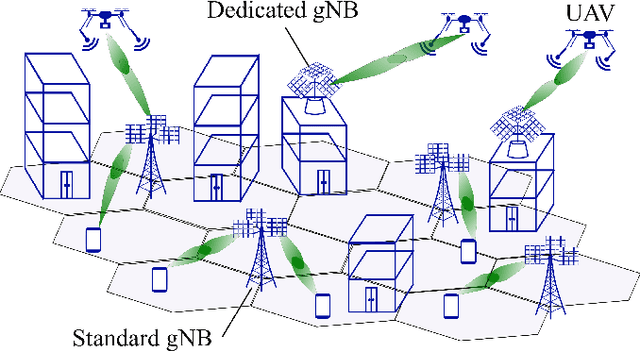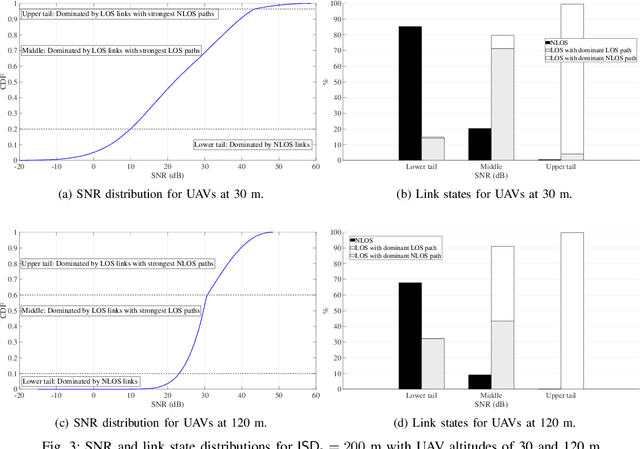Millimeter-Wave UAV Coveragein Urban Environments
Paper and Code
Apr 05, 2021



With growing interest in mmWave connectivity for UAVs, a basic question is whether networks intended for terrestrial users can provide sufficient aerial coverage as well. To assess this possibility, the paper proposes a novel evaluation methodology using generative models trained on detailed ray tracing data. These models capture complex propagation characteristics and can be readily combined with antenna and beamforming assumptions. Extensive simulation using these models indicate that standard (street-level and downtilted) base stations at typical microcellular densities can indeed provide satisfactory UAV coverage. Interestingly, the coverage is possible via a conjunction of antenna sidelobes and strong reflections. With sparser deployments, the coverage is only guaranteed at progressively higher altitudes. Additional dedicated (rooftop-mounted and uptilted) base stations strengthen the coverage provided that their density is comparable to that of the standard deployment, and would be instrumental for sparse deployments of the latter.
 Add to Chrome
Add to Chrome Add to Firefox
Add to Firefox Add to Edge
Add to Edge